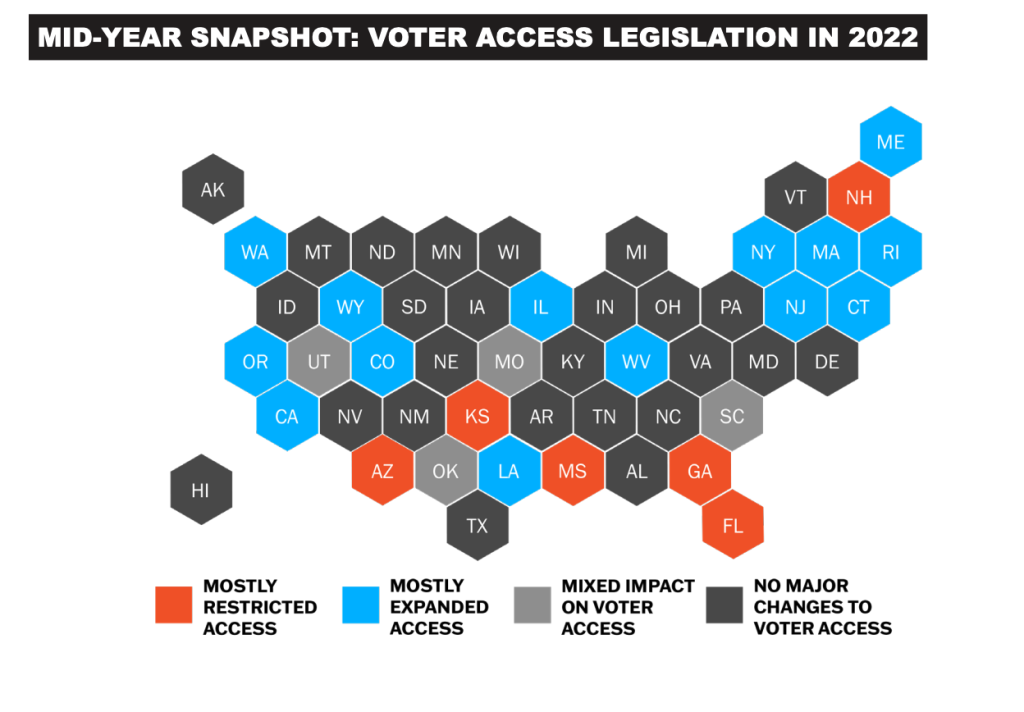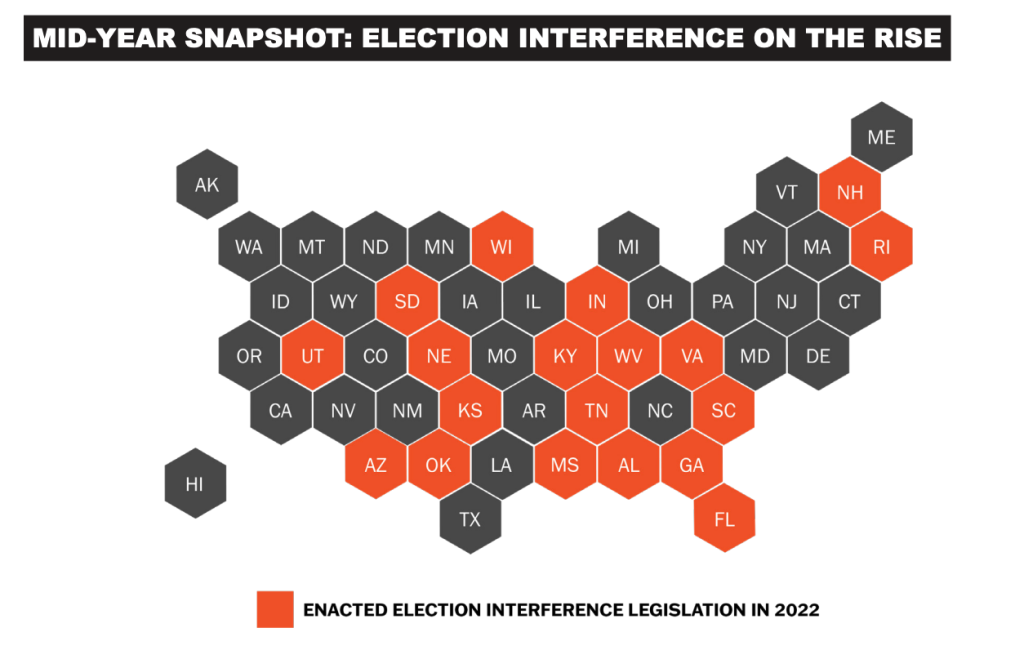Election integrity is still very much on the mind of so many Americans. UncoverDC reported on many of the measures on March 24. However, as laws work their way through the process, much is still being done to ensure that future elections will be more lawful in light of the fraudulent 2020 election. This article will serve as an update of various states' achievements.
Ohio voters will decide whether voting should be limited to American citizens in a referendum in the fall. The Ohio Senate passed the measure, but few Democrats in the House voted to support it. Ohio Secretary of State, Frank Larose, believes that most Americans still believe elections are the purview of American citizens. Larose told Newsmax on July 9:
"Both parties believe that citizenship is important and has value."
He said he believes if one were to ask newly minted citizens, "people who had just taken that oath if we should diminish the thing they worked so hard to earn, they would tell you to protect citizenship and voting."
In Wisconsin, the big news is that unattended drop boxes, which were always illegal, are now officially outlawed in the state. In a 4-3 decision, the court ruled that the Wisconsin Election Commission went astray when it allowed local election officials to put unattended drop boxes funded by the Chan-Zuckerberg Foundation and the Center for Tech and Civic Life (CTCL) in key cities around the state.
The July 8 majority opinion written by Justice Rebecca Grassl Bradley states that the legislature is in charge of permitting drop boxes, not election administration officials. Bradley also reinforced that "ballot drop boxes are illegal under Wisconsin statutes [and] an absentee ballot must be returned by mail or the voter must personally deliver it to the municipal clerk at the clerk's office or a designated alternate site." No decision was provided regarding whether a voter must personally place the ballot in a mailbox.
Alabama received around $3 million in cash from Zuckerberg. Still, the state voted in the spring with House Bill 194 to prohibit election officials from soliciting, accepting, or using certain donations from an individual or nongovernmental entity for the purpose of funding certain election-related expenses." Gov. Kay Ivey signed it into law in April.
Since the March update, Missouri, New Hampshire, Oklahoma, and South Carolina, have fortified their elections with various measures. Measures involving voter ID, ballot return and verification, curing of ballots, criminal penalties, shifts in election authority, and absentee ballots are among those that have been considered and passed. Arizona and Mississippi also enacted laws requiring proof of citizenship in June and April, respectively.
In addition, Arizona enacted a bill on July 6 to clean up dirty voter rolls. Kansas, Nebraska, Virginia, Idaho, and Utah also passed legislation to address dirty voter registration and voter rolls with varying degrees of attention to the issue. H 313 and H 67 in Utah look particularly strong, for example.
A look at the 2022 Voting Rights Lab (VRL) Map from their mid-year report shows the states that have strengthened their laws in red. Voting Rights Lab is a left-leaning organization. Anything indicated in blue means the state has moved away from stricter election integrity.
 Voting Rights Lab/Map
Voting Rights Lab/Map
Similarly, its map labeled "Election Interference on the Rise." shows the states in red which have strengthened election administration. VRL reports that 20 states enacted bills that "interfere with election administration."
 Voting Rights Lab/Map of states "interfering" in election administration.
Voting Rights Lab/Map of states "interfering" in election administration.
For example, a law enacted in Tennessee makes changes in post-election audit procedures. The Georgia bill, enacted in April, expands the duties of the Georgia Bureau of Investigation to investigate questionable elections. West Virginia's bill:
"Prohibits election officials from directly accepting gifts donations, funding, or "anything of value" for election administration from private individuals or entities outside of state or county appropriation, and requires that any such support be directed to the secretary of state, subject to the approval State Election Commission. The bill also requires that all private funds be held in an account administered by the secretary of state, with the approval of the State Election Commission, and requires the secretary to promulgate legislative rules regarding the distribution and use of such funds."
Some States Relax Election Laws
Predictably, Rhode Island, California, Washington, and Massachusetts seem more interested in fostering "voter opportunities, trust, and equity." For example, the bill in Rhode Island now allows no-excuse absentee ballot voting, eliminates the need for witnesses or notarization of signatures, and lawfully mandates absentee ballot drop boxes, even during early voting. The bill also relaxes other requirements to vote by absentee ballot.
South Carolina and Missouri expanded early voting for the first time in 2022. However, Missouri made voter ID more restrictive, as referenced above with HB 1878. Six states took action to expand early voting; Missouri, Massachusetts, Louisiana, South Carolina, New York, and Kentucky. Arizona and California improved voter access for citizens with past felony convictions.
The Republican Party May Be Changing
Populist movements are also on the rise. In Nebraska, over the weekend, the old guard GOP took a beating at the GOP convention resulting in a bunch of delegate resignations. GOP Chairman Dan Welch was ousted in a 204-124 vote. According to Omaha.com, "Matt Innis from Crete, Nebraska, was arrested in the morning on suspicion of third-degree assault and second-degree trespassing, according to Buffalo County Jail records." However, he was later released. He and four others barred from the convention because of wrong groupthink were reinstated later. The resolutions considered after Welch were centered around election security. One amended resolution required counting "ballots by hand under continued video surveillance."
Reporter Aaron Sanderford posted an epic thread on the events of the day at the convention—while asserting the Nebraska Republican party was in a fight for its future.
And not for nothin', but the Maricopa County Republicans unanimously voted to reject the "fraudulent 2020 election." Also, in Arizona, there are now 4 Republicans and NO Democrats running for the Board of Supervisors in conservative-leaning District 2.


